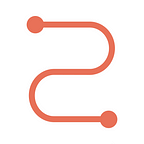Project-Based Learning Can Make All of the Difference for High School Students
Picture your average, Bay Area, public high school student. In an area overwhelmed by success, Ivy League dreams, and tech, this student would usually be facing high pressure tutoring and standardized testing. The even might think they want to have a career in computer science — -simply because everyone around them does.
But what happens when this student gets to do a project they’re passionate about? In the case of a real, Bay Area high school student like this, he was able to change his life and find his real passion through Path Mentors Co, an education company for high school students to work with recent Ivy League graduates on projects they’re interested in.
Through Path Mentors, this student was initially able to complete an app and make it public on the App Store — but it was what happened after that changed everything for him. What started as making some income from the app turned into learning to do his taxes, which became an interest in finances.
“He got interested in the investment market,” Jimmy Zhang, Path Mentors co-founder, said. “Several weeks and he reached back out to me and said, ‘For my next project can I do something that I like relate to that?”
While the student had never explored finance and investment before, he knew it was something that he was interested in and would not have the opportunity to explore in school. What started with a simple company analysis eventually grew into the student founding his own firm to analyze company investment. By the 10th grade, he had several papers published on financial platforms like Seeking Alpha and went on to a college with a fantastic business program. More than that, the student’s confidence, maturity, and communication skills skyrocketed.
That’s the power of project-based learning. Traditional education expects students to draw skills only from textbooks, lectures, problem sets, and papers. But project-based learning allows students to learn from real experiences, while also boosting their college application with something unique. Rather than racing their peers to earn the same credentials, students get to do something their passionate about and can serve them well into starting their career.
“A lot of the complaints I see [about traditional education] are that students don’t know what to do after taking calculus BC,” Clara Zhi, Path Mentors co-founder said. “I don’t think many parents or students realize why projects were important. But when they apply to college, they realize, ‘Oh, this is actually going to be at the top of my list.’”
If students know early on that they can do something they’re good at or passionate about they’re more likely to succeed later, and with greater confidence and expertise. In our education system however, it’s easy for many students to feel lost, and focus simply on getting into college — only to arrive realizing they don’t know what to do next. This can cause further feelings of loss, insecurity, and even mental health issues.
“Path Mentors is providing an alternative to extracurriculars, where, instead of activities and organizations, we are empowering students to choose their own path and do their own projects,” Daniel Eem, a mentor at Path Mentors, said. “I particularly enjoy is helping come up with project curriculums. But all in all, just overall helping a student’s growth as well as making sure that both parents, students, and mentors are happy is rewarding.”
— Mentor Amanda
Does this article resonate with you? You or a high school student you know could get mentorship from the author of this article or another one of our mentors, each of whom is a graduate of an Ivy League, Stanford, or MIT.
Schedule a free consultation call to explore mentorship and project possibilities that align with your interests.
